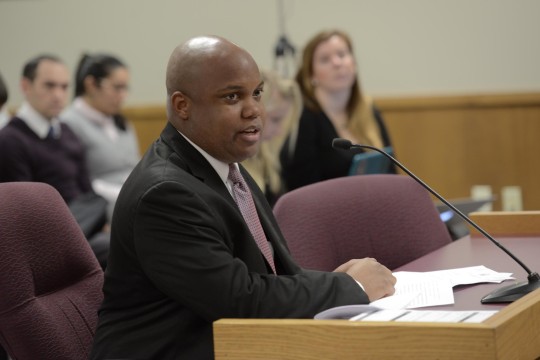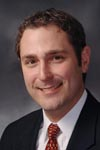ST. LOUIS – Next Tuesday in the April 5 elections, residents of St. Louis City and Kansas City will vote on whether or not to reauthorize their respective cities’ earnings taxes.
The measure has been opposed by St. Louis billionaire investor Rex Sinquefield as a burden on residents, workers and business within the city, but the vast majority of people in both cities elected to continue the tax in 2010. That year marked the first time the earnings tax was put to a vote before the general populace, and 78 percent of those in Kansas City and 88 percent of people in St. Louis decided to keep the tax.
However, the measure this year has been matched with pieces of legislation in both chambers of the General Assembly that would do away with the earnings tax entirely. Leaders from each city, including Kansas City Mayor Sly James and St. Louis Mayor Francis Slay, have opposed the measures strongly, saying that the resulting 33 percent decrease in revenue from getting rid of the earnings tax would mean across the board cuts to fire protection, police budgets and nearly every other sector of city government.
Some legislators, however, say the will continue to push for earnings tax reform regardless of the outcome of next week’s election.

PHOTO/TIM BOMMEL – MISSOURI HOUSE OF REPRESENTATIVES
Sen. Kurt Schaefer, R-Columbia, said that he would still push his own bill that would eliminate the earnings tax in St. Louis. The bill used to affect both St. Louis and Kansas City, but has since been amended to exempt the latter. Rep. Shamed Dogan, R-Ballwin, is offering one of the bills that would eliminate the earnings tax. He believes that the threats of police and fire cuts were merely scare tactics, and that if there is another large margin of victory to keep the earnings tax, then that “irresponsible rhetoric” had the desired effect.
However, Dogan expects the vote to be closer than it was in 2010.
“There’s a lot more organized effort this year than there was five years ago to pass that vote against it,” Dogan said. “If the voters don’t decide to eliminate it, I imagine that the vote is going to be a lot closer than it was last time, that might give us momentum to say more residents of St. Louis and Kansas City are waking up to say the earnings tax isn’t good for their cities, and that’s not even including the people that don’t live in St. Louis or Kansas City who pay the tax who would most likely vote against it if given that opportunity.”
Rep. Mike Colona, D-St. Louis City, has been one of the staunchest opponents of earnings tax elimination legislation, consistently questioning the argument of a state controlling a city’s tax code and especially one voted on by citizens of those cities.
“I fully expect the Republican-controlled Legislature to ignore the citizens of the city of St. Louis again,” he said.

Colona noted that political term limits on legislators had permitted greater catering to certain special interests that are pushing to pass their own ideas forward even if those ideas are not necessarily popular. He believes that politicians are still continually looking forward to the next election and need funds to successfully run those operations, and thus fall back onto special moneyed interests.
“If folks were to campaign back home on the following, ‘We don’t think you as local residents should determine your own tax policy, the state should dictate it,’ how many Republicans do you think would get elected?” he asked rhetorically. “Not many… It’s really frustrating that term limits have driven us to the point of, ‘What is my next move? What… can I file to cater to special interest groups to make sure the extreme of the extreme come out in a primary?’ If folks back home knew what the legislators were doing, I don’t think they’d be doing it.”
Colona did relent when it came to some legislators who he believed wanted to see a better solution that simply eliminating the earnings tax, including Emerging Issues Committee Chair Elijah Haahr, R-Springfield.
“Listening to the inquiry between Elijah and Sly James and… Mayor Slay, it seemed to be a little different than what the normal debate has been. Elijah seemed to be more concerned about the equitable issues,” Colona said. “Elijah came at it from a new perspective that I think folks who want an equitable tax scheme could be in support of.
“There are some folks in both parties when it comes to the earnings tax that want to modify the conversation.”
While Colona and Dogan may butt heads on the issue should it come up on the House floor, voters in the two cities could simply reject their earnings taxes outright, though that outcome is not likely by most indications.
“If the voters of St. Louis or Kansas City decide to eliminate their own income tax, then that kind of renders our legislation moot if it just goes away thanks to the voters,” Dogan said. “That would be my preferred outcome.”












